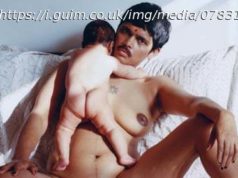Los Angeles Times film critic Justin Chang reports from the Cannes Film Festival on the films, events and scene around the cinema spectacle.
The 72nd Cannes Film Festival is under way (May 14-25), and along with fellow L. A. Times film critic Kenneth Turan and writer Amy Kaufman, critic Justin Chang is on the ground, taking in the scene and seeing as many movies as possible in between frequent steak tartare breaks. Early titles gaining buzz this year include the Elton John musical bio-pic “Rocketman,” Pedro Almodóvar’s semi-autobiographical “Pain & Glory” and Quentin Tarantino’s much-anticipated “Once Upon a Time… in Hollywood.” Chang gives us an up-close view of the most significant event in world cinema, a mecca for movie lovers.
In the eight years since Terrence Malick won the Palme d’Or at Cannes for “The Tree of Life,” his magisterial drama about childhood’s end and the spirit’s awakening, the standard critical line is that he has become an artist lost in the wilderness, stranded in an artistic limbo of his own making.
His most recent features — “To the Wonder,” “Knight of Cups” and “Song to Song” — are wispy, fragmentary tales of romantic ennui and moral drift, full of visual beauty but absent a comparable sense of transcendence. I admired them more than many of my colleagues did, though it would be disingenuous not to admit that I, too, was left wondering if this great and singular filmmaker would ever give us another movie to love.
I wonder no more. Sunday marked Malick’s return to Cannes, and it felt like a homecoming in more than one sense. His extraordinarily beautiful and wrenching new movie is called “A Hidden Life,” a title that quotes from “Middlemarch,” though one that could easily be misinterpreted as a reference to this famously press-shy auteur himself. But it also sounds an echo of “The Tree of Life,” which may be more than mere coincidence: If that 2011 film was Malick’s most personal and autobiographical work, then this one feels like a decisive return to roots. It’s at once a linear, almost classically structured drama and an exploratory, intensely romantic work of art.
“A Hidden Life” tells the story of Franz Jägerstätter, a peasant farmer from the Austrian village of St. Radegund who was imprisoned and executed in 1943 for refusing to fight for the Nazis. It’s the writer-director’s second World War II picture, after “The Thin Red Line,” except that here not a single shot is fired. The focus is entirely on Jägerstätter and his family, his growing discontent as Austria falls into Adolf Hitler’s grip and his heroic, ultimately fatal decision to become a conscientious objector
The final image of Pedro Almodóvar’s “Pain and Glory” is such a deftly planted masterstroke, such an ingenious and intuitive little meta-miracle, that you may wonder why you didn’t see it coming.






